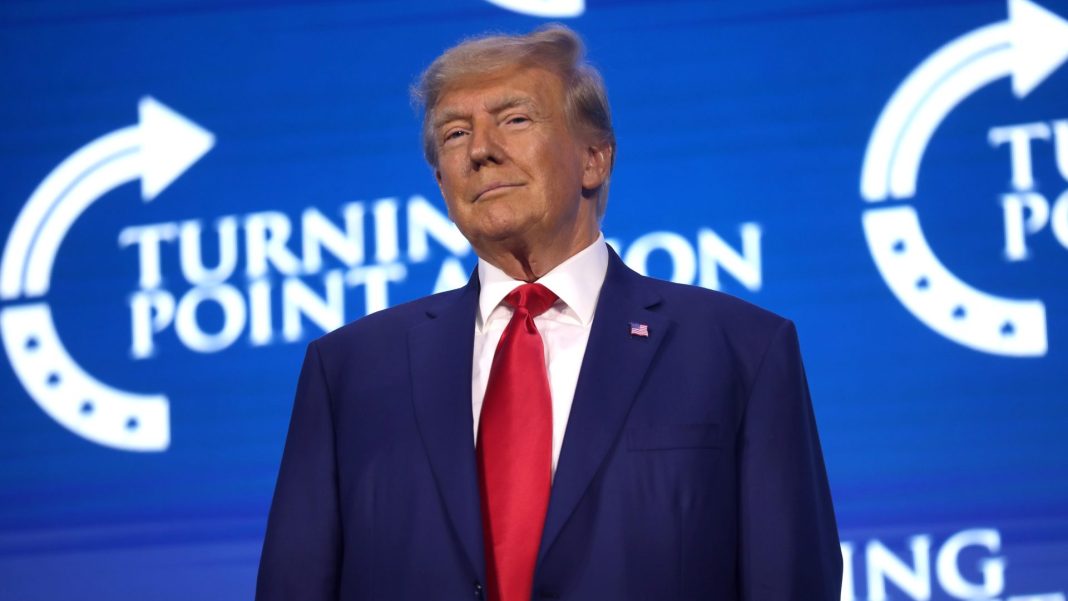Like most people who’ve read accounts of the 2016 campaign and Trump’s White House, I’m sure he never really wanted to win. Losing to Hillary Clinton would have transfigured him into a nationalist martyr for his endlessly re-rallied fanbase. Trump wanted to be the most famous unemployed person in the world when the votes were counted, free to phone his friends on Fox News, tweet, and watch three TVs at once while eating hamburgers in bed. When it became clear he was winning, he was horrified, his wife even more so.
Perversely, when he finally lost an election he was equally horrified. Trump put incredible pressure on US institutions to cling to power, attempting to bully his own vice president into setting aside the election results. On January 6th 2021, Trump whipped up a crowd to attack the Capitol with the same goal, leading to five deaths. Trump had gone from cynically calculating the benefits of coming second, to a kind of desperate, dead-eyed denial of the reality that he had lost, a reality he came close to overturning.
I think I might know why. It is not about the rallies, or the brand, or the art of the deal any more. He’s been out of his depth for a long time and he is afraid that the sharks are finally closing in. Three years after the Capitol attack, Trump is appealing civil court judgements against him of hundreds of millions of dollars. Allegations of sexual assault have also been upheld. He faces 40 criminal charges related to handling classified documents, four related to the January 6th insurrection, 13 related to election fraud, and a criminal trial that has just begun in New York where he is charged with 34 counts of falsifying business records.
These cases are coinciding with the election, and we have not yet reached “Peak Trump”. Former Republican Speaker of the House of Representatives Kevin McCarthy tweeted in April that Trump’s trials are politicised and “a threat to the rule of law”. He’s right, but not in the way he means. Polling consistently shows that a significant cross-section of US society believes that Trump is being persecuted by prosecutors. Of the 96 original jury candidates for the NY case, 50 immediately recused themselves because they felt they could not be impartial. 12 jurors were finally selected and cautioned in court that the case is “not a referendum” on Trump’s presidency. It may be difficult for Trump to get a fair trial in the atmosphere he has created. There is also the danger that guilty verdicts will lead to violence, perhaps the danger that he will unfairly be found innocent is even more serious.
For years Trump and senior Republicans have been warning of widespread civil unrest if he is convicted, arguably an encouraging dogwhistle to Trump’s supporters. Trump has verbally attacked members of the court and their families on social media and has paid $9,000 in fines for making intimidating statements in contempt of court. These outbursts have led his supporters to threaten the safety of people connected to the case and seem designed to undermine and delegitimise the proceedings. Legal observers note that defendants have been jailed for much less. Indeed, most defendants with Trump’s history (if not his profile) would have awaited trial in jail.
All of this comes in a wider context of the fragility of democracy. Investigative organisations have been reporting a decline in democracy globally for years, and the US is not exempt. Leaving aside Clinton’s dire campaign and flaws as a candidate, Trump’s election was swung by a successful Russian interference operation. This operation which capitalised on internal division and out of control contradictions – peace through war, growth through inequality, image without substance – led to a victory that has been a loss for Trump and for US society. In office Trump weakened the judicial branch and the Justice Department through cronyism and back-channel personality cult building. This mafia leadership style enabled him to almost overturn an election and continues to be a strong element of his support base today, highlighting further vulnerability of the system.
Trump seems like the kind of person who would crash a car to scratch his nose. His actions do little to show respect for the rule of law, much less a willingness to defend it. I strongly suspect that he has no stable values at all apart from a kind of avarice. Despite this, Trump coming through these trials and remaining electable would be an indictment and a warning for institutional decay which demands a response. The fact that he almost certainly will not remain electable much longer, and that we may all soon get to see him in a prison jumpsuit to match his makeup, remains grounds for cautious optimism. If the US is able to convict Trump and put him in prison despite his power and money, maybe we can have the audacity to hope that it will go further, reform its institutions and protect them from a very American kind of fascism. Nowadays we’re less comfortable with the image of the US as the world police force, unless delivered with a measure of satire. Maybe a more appropriate metaphor is a canary in a coal mine. The next year in the US will show us something of the next decade everywhere else. May we all continue to live in interesting times.


